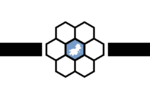Rongzhuo Strategic Protocol Organisation: Difference between revisions
Britbong64 (talk | contribs) No edit summary |
mNo edit summary |
||
| Line 22: | Line 22: | ||
|titlestyle=background:transparent;text-align:left;font-weight:normal; | |titlestyle=background:transparent;text-align:left;font-weight:normal; | ||
|title= | |title= | ||
|{{flagicon | |{{flagicon|Ajahadya}} [[Ajahadya]] | ||
|{{flagicon image|Flag of Xiaodong.png}} [[Xiaodong]] | |{{flagicon image|Flag of Xiaodong.png}} [[Xiaodong]] | ||
|{{flagicon image|Flag of the UNIR.png}} [[Union of Zorasani Irfanic Republics|Zorasan]] | |{{flagicon image|Flag of the UNIR.png}} [[Union of Zorasani Irfanic Republics|Zorasan]] | ||
Revision as of 19:07, 30 December 2019
容㒂戰略议定书组织 سازمان پروتکل استراتژیک رونگ رونگ Soorat-jeyshee Tashkeelat-e Rangshahr Protokoli Sozmoni Amniyati Rongzhuo | |
 Logo | |
| Abbreviation | ROSPO |
|---|---|
| Formation | 14 August 1982 |
| Type | Military alliance |
| Headquarters | Rongzhuo, Xiaodong |
Membership | |
Official language | |
Chairman | |
Coordinator of Land Forces | |
Coordinator of Naval Forces | |
Coordinator of Air Forces | |
| Expenses | Classified |
The Rongzhuo Strategic Organisation Protocol is a military alliance in southern Coius currently consisting of the Auspicious Republic of Xiaodong, the Union of Zorasani Irfanic Republics and the Union of Federated Republics of Hyndana. ROSPO was founded in 1980 originating from the Xiaodongese-Zorasani Treaty of Collective Defence which saw the two nations agree to a policy of collective defence following the Coastal Crisis, the unification of Zorasan and the creation of the COMSED. The organisation was formalised in 1982 following the signing the Rongzhuo Strategic Protocol.
ROSPO has since focused on integrating military technology and expanding membership. Unlike COMSED widely seen as as ROSPO's rival ROSPO does not include any economic or political element, being a military focused alliance.
History
- Separate treaties of mutual defence between the three nations over the years.
- Shared goals of anti-imperialism and hegemony over the regions they inhabit.
- All considered revisionist powers.
- Development of COMSED and regional tensions leads to greater cooperation between the main three.
- Signing of the Strategic Protocol to provide mutual defence.
- Possible intervention in some regional conflicts? likely a large deployment or at least joint air campaigns in the Duljunese War and possibly Operation Eastern Protection.
Military operations
Participating countries
Members
Partners
Structure
- Secretariat - the civilian body that manages the administration of the organisation.
- Conference - The meeting between HoS/HoG/Foreign ministers/Defence ministers
- Supreme Command - The main military body consisting of chiefs of staff.
- Coordination Committee for Land Forces
- Coordination Committee for Naval Forces
- Coordination Committee for Air Forces
- Research Council - Joint research between ROSPO members. Totally not Xiaodong giving nuclear secrets to allies.